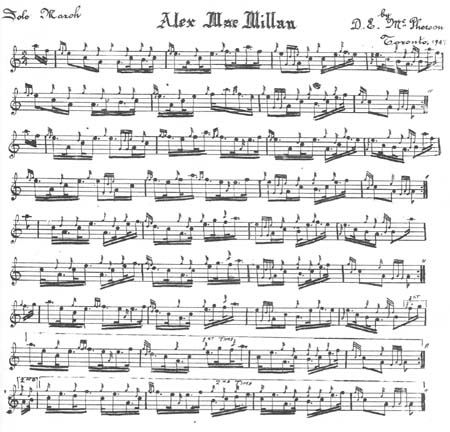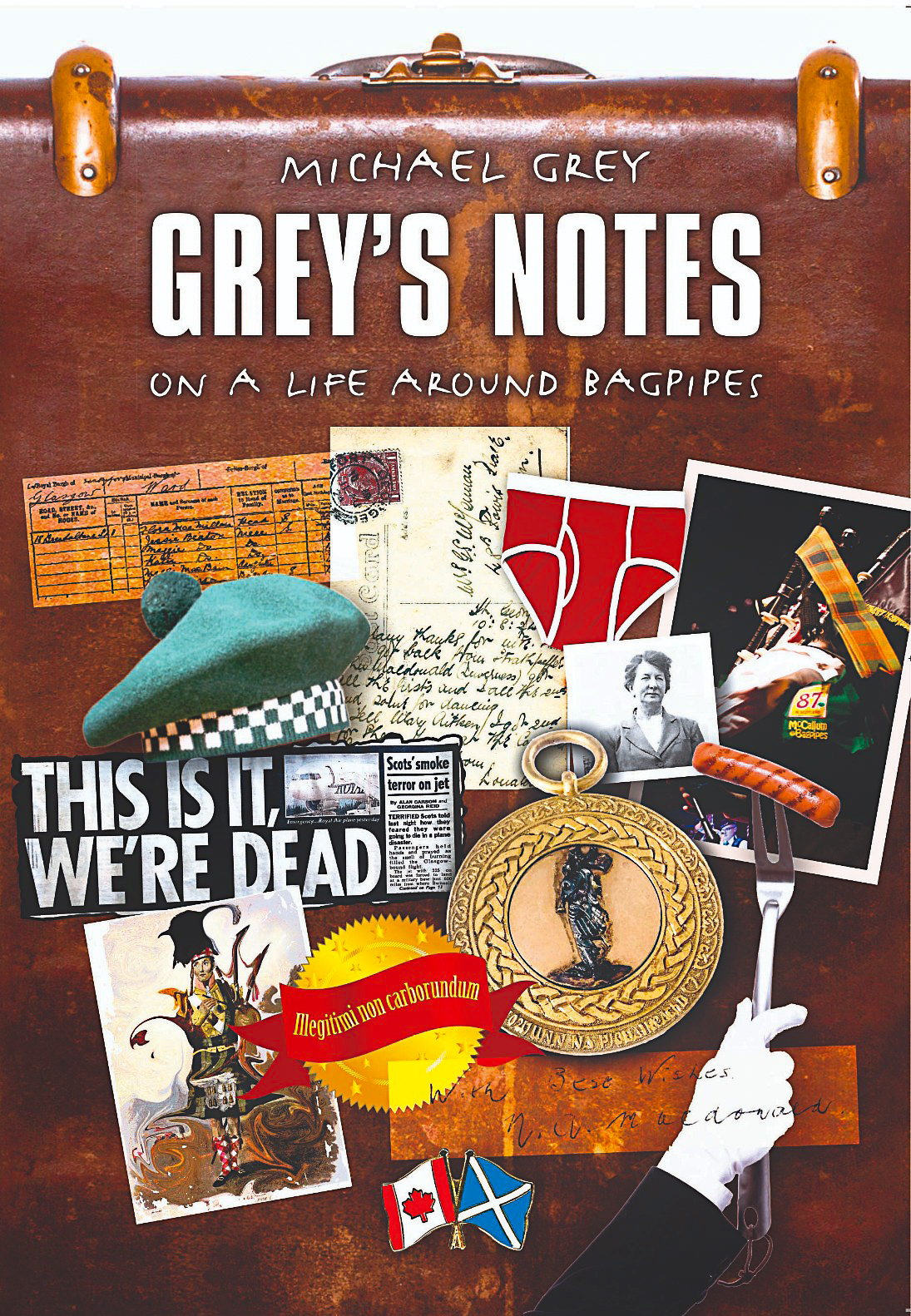Alex MacMillan: It’s a Small World
January 10, 2012 on 10:29 pm by Michael Grey | In Music, Photographs, Solo Piping, Stories | Comments Off on Alex MacMillan: It’s a Small WorldIt’s a small world must be one of the most often said bromides in the English language. But, surely for a reason: it is a small world. The top-of-the-small-world-pops in my family belongs to the story of my younger sister and her husband.
Here’s the scoop: After meeting and date number three or so they start talking a little about their families. He says to her something like, my Mum’s family comes from a little place in the Outer Hebrides of Scotland: Benbecula. Yikes, thinks my sister or something like that. That’s where my father’s mother comes from!
So it turns out that the Benbecula village, or maybe more rightly stated, enclave of houses, that is Torlum, Benbecula, forms a seriously common thread for both of them. On the birth of their first child I have a feeling they were on high alert for overly close eyes or, worse, only one: mid-forehead.
Of course, all’s well but interesting to learn more of my brother-in-law’s family; most probably, my family.
Here’s a tune he passed to me. Provided here at his courtesy. I looked at this and thought right away that the way to find out more about it was to talk to Reay Mackay, a Godfather of North American piping.
Reay is a veritable fountain of piping knowledge, a child prodigy and so a person who has made music through a good chunk of 20th century piping life. In his insight to this tune, he didn’t disappoint.
This tune, “Alex MacMillan”, is my brother-in-law’s grandfather [**small world alert**born in Torlum one year after my grandmother with the same surname as my grandmother’s mother, the 1891 Scottish census shows both families living in Torlum at that time … I digress]. It was written by Donald Ewen Macpherson from North Uist. Reay relayed yet another fascinating back-story to this manuscript [I admit: it’s the second back-story that may interest you].
First, the tune is really good. We both agree, it’s full of merit, clearly written by an accomplished musician and completely playable and worthy of competition. Second, **small world alert** the manuscript is from the hand of Murdo MacLeod, one of Reay’s teachers and Benbecula emigrant – and, just by the way, a pupil of John MacDougall Gillies.
Reay said he could recognize Murdo’s hand anywhere and has copies of tunes written in the same stylish pen. So here we have a tune for a Benbecula man, composed by a North Uist man and in the hand of another Benbecula man – all immigrants to the Toronto-Hamilton area. You’d have to think they were all good pals.
But the really interesting thing about this is related to the composer of Alex MacMillan.
Donald Ewen Macpherson was something else: a real all-rounder. Not saying the guy could just play jigs and the big music, no, this guy could play the whole gamut of bagpipe music and highland dance, toss the caber and do all the heavy events – and do them well. In fact, as Pipe Major of the Royal Scots he won the wrestling championship of the British armed services [William Donaldson, The Highland Pipe and Scottish Society: 1750-1950″].
Macpherson was a man cut from the all-rounder rough cloth of John MacColl and D.C. Mather. Though those guys, while Highland dancers [the kind of Highland dancing, by the way, the Gaelic College is so down on], didn’t seem as big on the heavy events. Not like our Donald Ewen Macpherson.
So what’s the deal with Donald Ewen Macpherson and his buckshot aim at all the prizes on offer at the Highland games?
We only have to look to Donaldson for a little insight. Referring to the early days of the twentieth century he notes the problem [p. 205] of the same old names turning up in the solo piping prize lists with the struggling young players never seeming to catch a break. I suggest that’s probably an age-old problem. Though pipers like Donald Ewen Macpherson had a solution to covering their travel “and other – expenses: they competed in all the events they were able:
Given such difficulties, some young pipers preferred to concentrate on track and field events, where arcane considerations of authority and reputation did not predetermine the outcome, where they did not have to bear written accreditation from social superiors before they could even enter (as was the case with piping events at a number of games, including the Northern Meeting), and where victory and defeat were normally unequivocal. Robert Meldrum recalled one of his own pupils, Donald Ewen Macpherson of North Uist, ‘who was a most promising piper, playing some splendid piobaireachds, but he preferred the athletics side of the games…
Indeed he did. He immigrated to Toronto and, according to Reay, opened a gym on Queen Street in Toronto, one of the city’s main streets. Signs, like this tune, point to his continued involvement in the piping world.
So, there you have it: an interesting story and damned fine tune, all courtesy of my brother-in-law.
That’s Brother-in-law: thanks to our small world, with the biggest of upper case Bs.
M.
PS. Interesting to note that on emigrating to Canada Alex MacMillan joined the 16th Battalion (The Canadian Scottish) and in WWI fought at the Somme serving in the same regiment, and battles, as piper James Richardson, VC.
No Comments yet
Sorry, the comment form is closed at this time.
Dunaber is using WordPress customized and designed by Yoann Le Goff from A Eneb Productions.
 Entries and comments
feeds.
Valid XHTML and CSS.
Entries and comments
feeds.
Valid XHTML and CSS.



